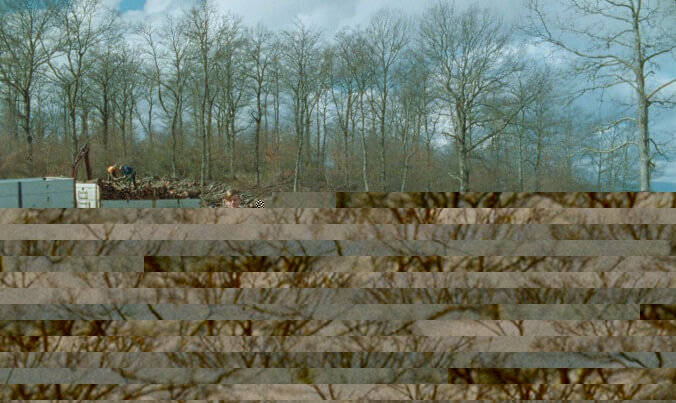Futura offers a vivid COVID-era portrait of Italy’s youth
Three Italian directors engage in a rich tradition of cinematic reportage
Film Reviews Futura
In early 2020, three Italian directors, Pietro Marcello (Martin Eden), Alice Rohrwacher (Happy As Lazzaro), and Francesco Munzi (Black Souls), got together to make a film about Italy’s youth. To their growing subjects, they posed variations on one basic question: How do they imagine their future?
The resulting film, Futura, was inevitably transformed by the COVID-19 pandemic. It’s become a vivid, urgent time capsule—a film that’s remote and distant in some respects, but all too relatable in others. At one point, a university student talks about how differently the Neoplatonic philosophers he’s reading conceived of the world, reminding us of how our minds—our views of reality—change in time. We are reminded, too, that any attempt to imagine a future reality inevitably reveals something about our present one.
In both conception and execution, Futura engages with a rich tradition of cinematic reportage going back to such films as Louis Malle’s Place De La République and Pier Paolo Pasolini’s Love Meetings. (American viewers might also note the project’s similarity to the one Joaquin Phoenix’s character embarks upon in the recent C’mon C’mon.) Those movies, largely composed of straightforward interviews, were concerned with how people saw their own situations, settings, and problems. Moving across Italy’s picturesque landscape, Futura engages with a varied cross-section of the nation’s youth. We get interviews with budding beauticians and machinists in training, with aspiring boxers from Cagliari and Milanese culinary students, with Genovese choral singers and female jockeys from Torino. The filmmakers frequently change up their questions, even zeroing in on specific subjects like money and governance. But whatever the topic, the focus always remains on how Italy’s adolescents view their country, their future, their place in the world.
As one might expect from interviews with a bunch of teenagers, not all the responses are interesting, and they grow frankly somewhat repetitive over the 110-minute runtime. Futura also recalls the cinéma vérité classic Chronicle Of A Summer, in which Jean Rouch and Edgar Morin likewise started out by asking respondents a basic question (“Are you happy?”). But that film continually interrogated itself. For better and worse, Marcello, Rohrwacher, and Munzi stick faithfully to the reportage template. Only during an interview with students from the Armando Diaz school in Genoa, the site of a police raid on protestors during the 2001 G8 summit, does Futura begin to reflect on its own approach. Incorporating archival footage from that event—a previous generation’s struggle, which most of the interviewed students are too young to remember—the filmmakers give us a sense of how the film we’re watching might eventually be viewed 20 or 50 years down the line.
Self-reflexiveness is no guarantee of value in a documentary, and Futura works perfectly well as cinematic reportage. Still, the film does at times feel slack and arbitrary—a bit like a census that no one could argue is unimportant but which nonetheless has the feel of a box-ticking exercise. And it seems like a missed opportunity that the directors, for whatever reason, don’t venture into their subjects’ online presences—this, despite the increased currency of digital spaces during the pandemic. Talk of social networks is mostly confined to one guy describing them as a kind of “plague.”
By their own admission, the directors of Futura sought to practice “a form of cinema that was alive in the past, but is rarely practiced today.” And they’ve succeeded, right down to the interview technique and 16mm cinematography. But it’s worth asking whether changing their methods—perhaps by sourcing footage from the youths themselves—may have been a better way of carrying the reportage tradition into, well, the future. Watching a young Veronese musician rap as he would in a self-produced music video, one can imagine a different version of Futura, one where the filmmakers occasionally put down their cameras and start looking through their subjects’ own.
5 Comments
Wait, this isn’t the prequel to Helvetica?
And here I was hoping this was the sequel to Helvetica we’ve all been clamoring for.
I was about to suggest that there should be a horror movie called Hellvetica about a demon-possessed typewriter, but apparently someone beat me to it:
https://www.imdb.com/title/tt2371343/?ref_=fn_al_tt_1
Get your own joke: https://www.avclub.com/amy-schneider-loses-jeopardy-40-games-1848426914